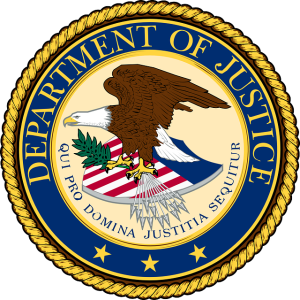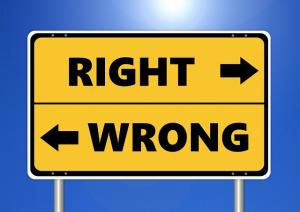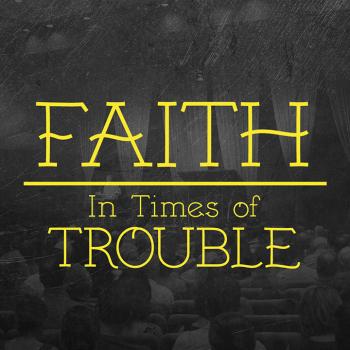
Searching For Justice
“Searching For Justice in the 2024 Presidential Election” might sound like a bold claim. After all, what makes me the expert? Why do I feel like I’m the one who can spot it in the day-to-day world of politics? After all, what is it, anyway? Justice is really a simple concept. It means doing the right thing. In this article, I want to examine the subject from 3 different angles: Governmental responsibility, Personal ethics, and Biblical understanding. But lying under the surface of this search for justice are questions that need an answer. Questions like: Does justice stand alone? Is it enough by itself? What virtues support the work of justice. Let’s begin with a look at justice and the role of government
The Government’s Responsibility
Searching for justice in the 2024 Presidential Election first requires that we understand the government’s responsibilities to its citizens. According to the World Economic Forum, those responsibilities fall into 3 categories:
- To Protect against enemies, both foreign and domestic, along with all that it entails (law, order, military, laws and consequences, etc.).
- To Provide goods and services, problem-solving, economic stability, and a business-friendly environment.
- To Invest in the talent and potential of its citizens through basic and higher education and opportunity. (“3 responsibilities every government has towards its citizens,” 2017, World Economic Forum).
These 3 are the framework for a government’s approach to justice. Different countries have different values and ideals that affect how these three basic elements are approached and administered.

Credit: Image by Clker-Free-Vector-Images from Pixabay
Governmental Leadership
The leaders of a government are primarily responsible for protecting, providing, and investing in justice. In the United States, that leadership is separated into 3 areas of authority: The Executive, Legislative, and Judicial branches of government. Government implies politics, and politics is the art of compromise. For those leaders to collectively act justly requires a certain quality of character. That character involves 4 things:
- Intelligence,
- A centered moral compass,
- Maturity of thought and action,
- The will to work together.
The United States of America is a great country. In my opinion, it is the greatest country on earth. However, objective data might suggest otherwise. The World Population Review ranks the United States as #34 (a flawed democracy) out of 167 democratic nations (Democracy Countries 2024, World Population Review, Retrieved November 1, 2024, from WorldPopulationReview.com.) If you, like me, are an American, you will probably disagree with that view for sentimental or personal reasons. However, if the data are correct, then there isn’t anything that we, as individuals, can do about it. Instead, we must focus our efforts on what we can actually effect. That’s where personal ethics matter.
Personal Ethics
The second view of justice comes from our ethics: a person’s sense of right and wrong. Jesus’s new commandment ‘To Love your neighbor as yourself.‘” is the foundational Christian ethic. He made it clear that every good regulation revolves around the issue of love. Even though ours is a secular, pluralistic culture, much like the one in which Jesus lived, that is all the more reason we need to live by love. In a previous article, I wrote about ‘yard wars”; planting yard signs naming our preferred candidate. In Saginaw, Michigan things escalated to the point that some people took their neighbors to court. But Jesus showed us that it is possible, even necessary, to be civil and to discern what is good and evil, even under pressure.

Understanding Your Personal Ethics
Russell Moore, Ph.D., is Christianity Today’s Editor-in-Chief. A fine theologian and communicator, Dr. Moore has written a brief article titled “How To Develop a Christian Ethic.” It is well worth the read, but if you can’t take the time right now, I’ve listed what he calls the “3 most important things you can do to develop a solid Christian ethic,” along with their first paragraphs.
- Know the Bible – “Knowing the Bible goes beyond being able to recite individual verses. There are a lot of Christians who know specific proof texts, but they don’t know how to understand the whole fabric of the Scriptures. They’re unable to inhabit the world of the Bible and see how it applies to ethical and moral issues in their life, especially those that feel new and difficult.”
- Know People – “Developing a Christian ethic means understanding human nature. And that means listening and developing empathy for people, especially people who are in a different situation than you.”
- Know Great Stories – “Reading good literature, especially fiction, is more important than keeping up with current events. That’s not to say that it’s unimportant to keep up with current events, but reading good fiction can help you to get inside the minds of people different from you in a way that is more significant than simply knowing what this or that group of talking heads are saying.”
Let’s see what Dr. Moore’s first emphasis, “Know the Bible,” has to say about justice.

Biblical Understanding
In simple terms, justice means doing the right and merciful thing. The Hebrew words for justice, charity, and righteousness are very similar. Taken together, they teach us that God is righteous and he is love; therefore, he is just. Because of his great love, he makes it possible for us to be righteous or right with God. If we are right with God, we will also desire to act justly toward others. This is the foundation for loving neighbor as self. Justice is not judgment, but when we, God’s people, fail to act justly, the Holy Spirit will convict us so that we may repent (John 16:8) and not be judged (I Cor. 11:31). This pattern is consistent throughout the Old and New Testaments. I said earlier that justice is doing what is right. However, doing the right thing is often a subjective reflex. In other words, there are times when we respond from a place of confusion about what is right and what is wrong. As a result, our immediate response to a situation might well be unjust.

Image by John F from Pixabay
Does Justice Stand Alone?
Roughly 700 years before the birth of Christ, the prophet Micah accurately prophesied important events for Judah and Israel. One of those prophesies was about the birth of Jesus the Messiah (Micah 5:2). There are other important predictions as well, but perhaps the most memorable verse in the book of Micah is (Micah 6:6-8). Verses 6 and 7 are a rebuke of the outward ceremonial acts that God’s people thought would please him. But then, the prophet makes clear that God is more interested in the condition of our hearts than in our religious ceremonies. He says it like this:
“He has shown you, O man, what is good;
And what does the Lord require of you
But to do justly,
To love mercy,
And to walk humbly with your God?”
Justice never stands alone. In fact, it is surrounded by the actions that prove its very existence. Justice is not possible without a passion for mercy and a posture of humility.
Conclusion
While searching for justice in the 2024 presidential election, I’m sure we’ve seen the commercials, listened to the candidates and their surrogates, watched our favorite 24-hour news channels, and read from newspapers and periodicals that suit our bias. But where is the justice? Where is the mercy? Where is the humility? Those are the questions we must ask of our government and our own personal ethics. As my good friend Ben Bookie, a licensed professional counselor, often says, “For too long, Christians have let their politics inform their faith instead of their faith informing their politics.” So, when you vote, please remember that Jesus wasn’t political. He lived in one of the most politically charged times in history, and he did not address it. Instead, time after time, he directed our focus on the Kingdom of God, where justice, mercy and humility reign.
If you like this article, please leave a comment below, I would like to hear your thoughts.
















